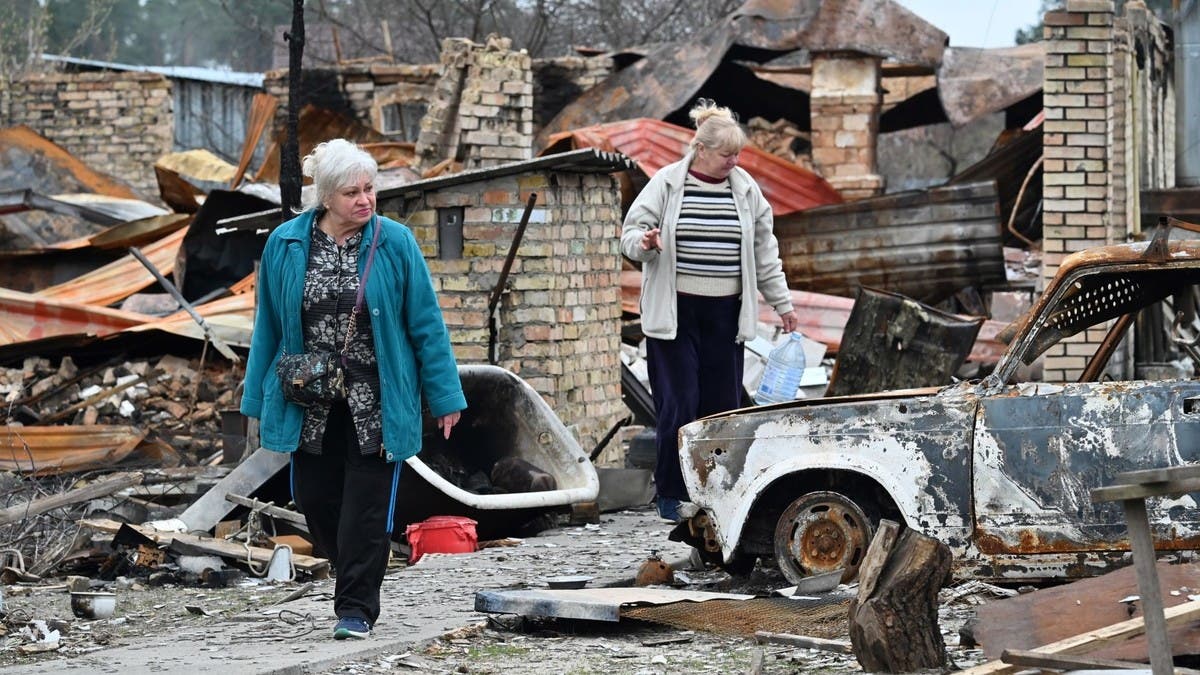Four months into the Russian invasion on Ukraine, Lilya, a 22-year-old mother from the eastern city of Bakhmut, decided the time has come to leave the beleaguered region.
“It is very difficult. No electricity, no water, no gas, nothing,” Lilya, who would give only her first name, said, sitting on a train at the Pokrovsk train station in Ukraine's Donetsk region and breastfeeding her year-old baby.
“How are we to live? Shelling. It has become very scary. We decided to leave.”
With Russia's intense pummelling of the broader Donbas area, which is comprised of the Donetsk and Luhansk's regions in Ukraine's east and south, for some there the World Refugee Day on Monday will be a day when they fled their home.
For the latest headlines, follow our Google News channel online or via the app.
Since the start of the Russian invasion on Feb. 24, the United Nations estimates that more than one-third of Ukrainians have been forced from their homes, with seven million displaced internally and more than five million fleeing the country.
And while some Ukrainian refugees have since returned home after Russian forces have focused efforts away from the capital Kyiv and onto trying to take complete control of Donbas, a growing number of families in that region have decided to flee.
“I am a single parent, I have three children, there are no benefits there, the only way to survive is to rely on humanitarian aid,” said Viktoria, a 36-year-old woman from Krematorsk, a city in the northern area of the Donetsk region.
“I am leaving with the children so that I can get some child support.”
The United Nations also estimates that some 13 million Ukrainians continue to be stranded in affected areas or unable to leave due to heightened security risks, destruction of bridges and roads, as well as lack of resources.
Luhansk Governor Serhiy Gaidai said on Sunday that fighting made evacuations from the city of Sievierodonetsk impossible and Russia said it had taken control of Metyolkine, just southeast of the besieged city.
“There is no electricity, no gas, no water, permanent shelling,” said 57-year-old Lyuba, who decided to flee a small village near Bakhmut.
“Life is extremely difficult, that's why we decided to leave. To save ourselves, our lives, the lives of our children and relatives.”
The residents of Bakhmut, a city located some 55 kilometres (34 miles) southwest of the twin cities of Sievierodonetsk and Lysychansk, where fierce fighting is taking place, have endured continued Russian shelling.
“Our mission here is to move people from the frontline areas out to safer areas,” said Mark Poppert, a volunteer from Nebraska for the UK-based RefugEase charity, while directing people at the Pokrovsk train station.
Kyiv described the battle for Donbas as “one of the most brutal battles in Europe and for Europe.”
Moscow calls its actions a “special military operation” to disarm Ukraine and protect it from fascists. Ukraine and its allies in the West say the fascist allegation is baseless and the war is an unprovoked act of aggression.
Read more:
New UK Army chief instructs troops to prepare to face Russia on battlefield in Europe
Russian missiles destroy east Ukrainian fuel depot, killing one
NATO chief says war in Ukraine could last ‘for years’

 World3 years ago
World3 years ago
 World3 years ago
World3 years ago
 Business11 months ago
Business11 months ago
 Entertainment7 years ago
Entertainment7 years ago
 World7 years ago
World7 years ago
 Entertainment7 years ago
Entertainment7 years ago






